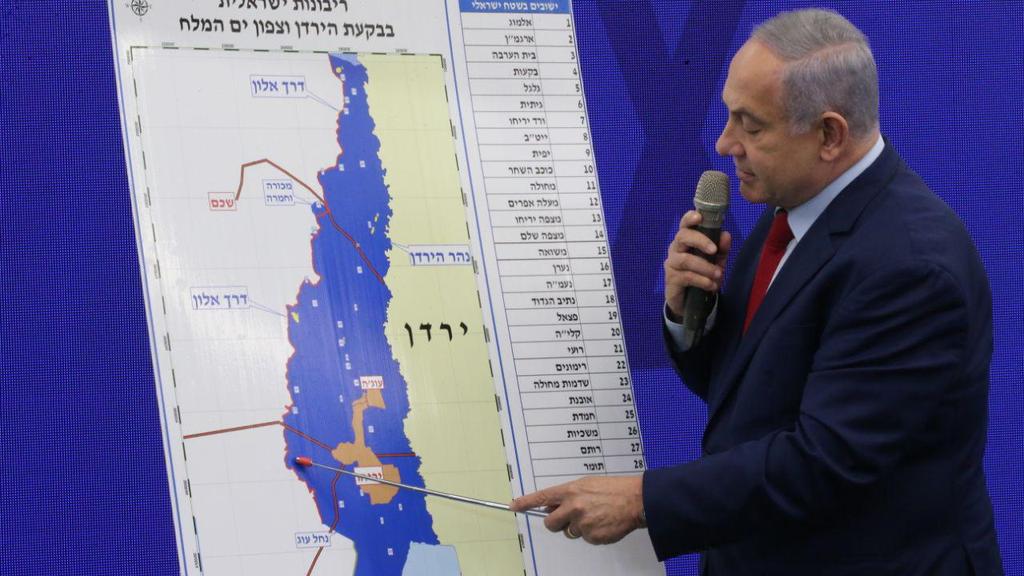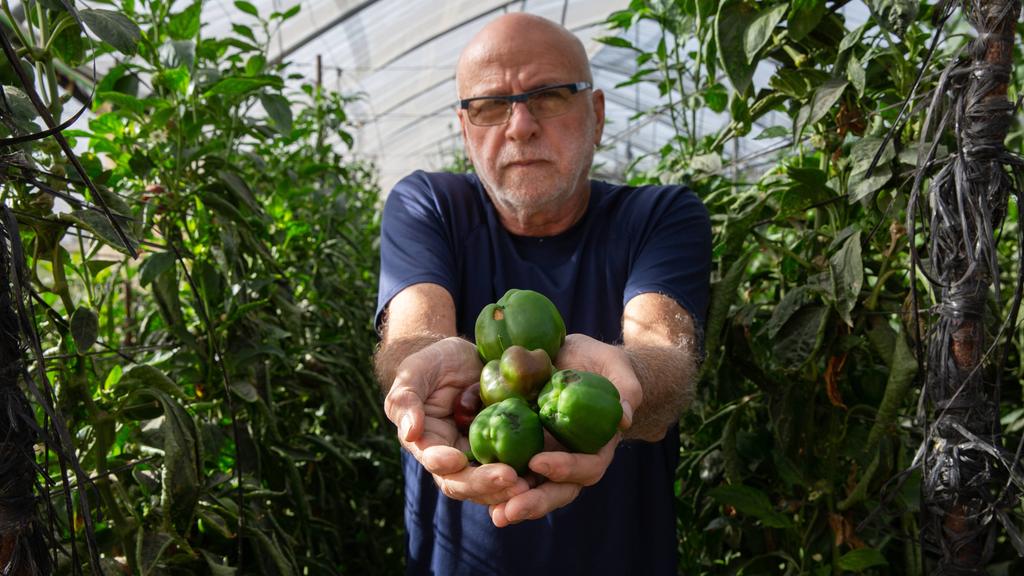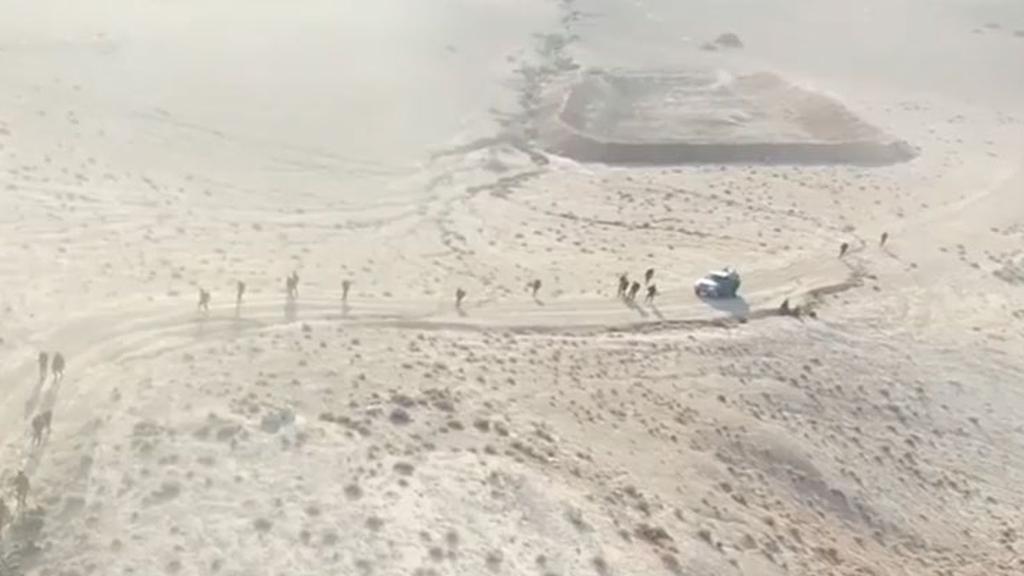Once a month, Prime Minister Benjamin Netanyahu pulls the magic card, the annexation of the Jordan Valley out of his pocket and sticks it into his propaganda machine.
Netanyahu understands the ins and outs of the Israeli psychic and recognizes the power of his magic card, which contains both the promise of a dream and a future of governance.
3 View gallery


Prime Minister Benjamin Netanyahu explains plans to annex the Jordan Valley
(Photo: Moti Kimchi)
Since September he has been using it more and more frequently.
Jordanian condemnation, dire warning from IDF chiefs and American denials serve work to fan the flames for the prime minister who expects the headlines containing the words "annexation of the Jordan Valley" to attract his voters.
But his promise conflicts with reality on the ground.
While Netanyahu speaks of annexing this desired piece of land, local residents suffer from a lack of water for farming.
While he rushes to meet U.S. Secretary of State Mike Pompeo in Lisbon and rushes to the press to declare he had raised the matter of annexation, local residents struggle to find a doctor to treat their sick children.
Netanyahu makes headlines in the world press while they struggle with government cuts that reduce services even further in their region.
Some residents may believe annexation will ultimately improve their lot, but they run the risk of becoming extras in Netanyahu's marketing illusion, expected to help him pave the road away from the criminal proceedings that await him should he fail to win the next election.
Netanyahu does not really know anything about living in the Jordan Valley.
He never knew Zvi Elbaz from Hamra, who died after battling cancer a month ago. In Hamra, 16 people out of just 50 families have recently died of cancer.
Zvi was wounded twice in terror attacks. He moved to the Jordan Valley 40 years ago with the hope and a dream to make the desert bloom – until cancer ended his life.
Netanyahu does not know these special people who settled in the hot and dry Jordan Valley, who have been forgotten by governments, deprived of medical services and cut off from the rest of the country by the sheer distance.
He does not know these people who watch as their children turn their backs on the life their parents had built and opt to move away, while those who stay cannot provide their families with even the basic need for proper medical care.
If the prime minister had ever known these people, he would have perhaps chosen to bestow his sympathy and compassion on them before bestowing his propaganda.
He would have perhaps raised their plight with the ministers responsible for it, or maybe built a hospital that could provide much-needed services for their communities.
After all, it could have been a photogenic hospital that he would have been able to use in his re-election campaign.



